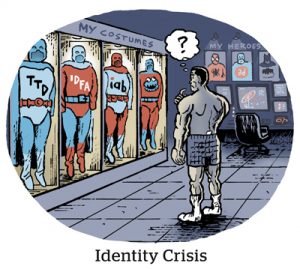 Workflow management software provider Mediaocean will integrate with four demand-side platforms (DSPs) to automate programmatic account management and billing for its agency partners, the company announced Wednesday.
Workflow management software provider Mediaocean will integrate with four demand-side platforms (DSPs) to automate programmatic account management and billing for its agency partners, the company announced Wednesday.
The program, announced at AdExchanger’s Programmatic I/O conference in New York City and called Connect Programmatic, launches with DSPs TubeMogul, The Trade Desk, Rocket Fuel and MediaMath on board. The feature will be available to all agencies using Mediaocean and buying through these platforms.
Through API integrations, the participating DSPs will hook directly into Mediaocean’s Prisma workflow platform, which automates invoicing, billing and other back-office functions for media buys.
Mediaocean CEO Bill Wise called the new product a “systems integration play” that will help agencies manage the growing bulk of their workflow bought programmatically.
“It’s not necessarily sexy, but it’s important,” Wise said. “[The industry is] so focused on advanced analytics buying on the front end, they often forget about the back end. Sometimes you just don’t think about the plumbing.”
But agencies will need stronger plumbing as they shift their budgets more heavily to programmatic, where workflow is (ironically) still executed manually.
“[Programmatic] is growing,” Wise said. “We need to mature the full end-to-end workflow to make sure that we as an industry continue to move forward and scale programmatic.”
Through Connect Programmatic, agencies can directly push out insertion orders, invoices and bills to DSPs as the platforms push back real-time reporting to agencies. Buyers will gain a holistic view of how programmatic is performing alongside all other media buys within a single platform.
“Programmatic has been siloed out,” Wise said. “Getting that all in one place is important for the efficiency and efficacy of managing media buys.”
On the DSP side, Connect Programmatic strives to solve the very real pain point of lagging payments from agencies.
“Time to get paid is much greater for the programmatic players than other people in the ecosystem,” Wise said.
The deal will give Mediaocean, which has 80,000 users across its client base and funnels $130 billion of ad spend through its software, inroads to working with the vendor community. Mediaocean expects to see these primary integrations roll out during Q1 2017 as it looks to bring more DSPs on to its platform.
“There will absolutely be other [DSP partners],” Wise said. “The agencies are really driving who they want to prioritize first based on scale and sophistication.”
Mediaocean is also looking at integrations beyond the DSP space. For example, the company is working with data management platforms to embed cost data into its workflow management.
“We’re starting with the DSPs and will prioritize our product road map accordingly,” Wise said.














